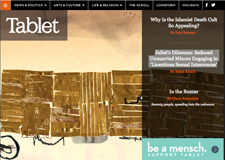Westhampton Beach trustees talked for two hours Jan. 21 about a bocce court, “Food Truck” event, yacht basin repairs, and snack bar contract. Unmentioned was the eruv that has cost WHB $125,118 so far and the proposed $181K police commissioner.
 Speir |
Dean Speir, member of the WHB Zoning Board of Appeals from 1985-96 and WHB webmaster from 1999-07, who operates the whbqt blog, said it was the longest work session in the history of the board which he has been following since 1968.
“Conspicuously absent,” he wrote in his coverage Jan. 21, was any mention of the “contentious” post of police commissioner whose pay would be on top of the $172K pay to Police Chief Trevor Gonce. WHB would be the only municipality in Suffolk County with two “police chiefs,” critics, including Lloyd Harbor Mayor Jean Thatcher, have said. The proposal was made by Mayor Marie Moore.
Full time police number about ten. The much larger Southampton Police Dept. has been trying to absorb the WHB dept. for at least four years without success. Gov. Andrew Cuomo is urging small government units throughout the state to merge with larger ones.
Speir noted that without the required legal notice in the Southampton Press, no action can be taken at the Feb. 5 meeting. A public hearing is required for creation of such a post.
Eruv Not Mentioned
Also “conspicuously absent,” he wrote, was any discussion of the eruv, a religious boundary created in WHB by Orthodox Jews last summer without village approval. Markings called lechis have been put on the entire lengths of 27 utility poles to signify that they are parts of “doors” enclosing a “domain” of the observant.
They believe they are “home” when on the right side of the poles and can carry objects and do other “work” on the Sabbath that would otherwise be forbidden.
Former WHB Mayor Conrad Teller estimated that “90-95%” of villagers were against use of telephone poles on public property for religious purposes.
Eruv supporters say the clear plastic strips that have been tacked to the poles are “nearly invisible” and carry no overt religious message. However, critics say the Orthodox perceive a religious message and other religions might just as well tack crucifixes to the poles, the star and crescent of Islam or other such symbols.
Critics say the Orthodox have “branded” the poles much like McDonald’s or Starbucks might, turning them into ads that bring in business, in this case more members of the Hampton Synagogue. The root motive is commercial, they say.
Eruv Erected Without WHB Permission
The erection of the WHB eruv last August by the East End Eruv Assn. without the permission of the village touched off 125 comments on 27east.com. A dozen more were so heated that they were deemed “inappropriate” and not allowed. “I wonder what the reaction would be if Christians put a crucifix on every pole so they could stop and say a prayer?” wrote one.
Defenders said the symbols merely help the Orthodox to wheel baby carriages or the handicapped and serve a “secular” purpose.
At least three suits are winding their way through Federal Courts with the legal bills of WHB, Southampton and Quogue currently totaling $884,837. The six separate actions in the case are in a 38-page, 12,857-word memorandum of U.S. District Court Judge Kathleen Tomlinson entered Sept. 24, 2014.
Miami Beach Has “Mystery” Eruv
An eruv controversy hit Miami Beach last summer when one was erected in Pine Tree Park. MB was already enclosed in an eruv but it was invalidated when a kayak ramp was built into the water. That was a “breach” in the eruv which was no longer operable. The eruv boundary must be continuous.
Some local citizens protested and the Freedom From Religion Foundation, Madison, Wis., said the Pine Tree eruv was dismantled. MB officials noted it had not obtained a permit.
Donald Papy, MB attorney, has been asked whether a permit for the eruv has been obtained. He said he is trying to find out what happened.
Online Tablet Mag Covers MB Eruv
 Butnick |
Stephanie Butnick, senior editor of The Tablet, 37 W. 28th st., New York, an online magazine that is “A New Read on Jewish Life,” posted a story about the dispute July 11, 2014 and touched off 44 comments.
Participants on both sides dug in, the pro-eruv side noting that eruvim are barely visible, give no religious message, and only allow the observant to carry things outside of their homes on the Sabbath that they otherwise could not (since an eruv converts public space into a private domain).
Linda Blumstein of West Bloomfield, Mich., penned the most popular entry, “liked” by ten people. She wrote:
“We have one in our neighborhood and I have no idea where it begins and where it ends, the electrical wires and poles are an integral part and more power to you if you can tell the difference. Who cares? There's no symbolism involved and if you didn't know it was there you would never notice it. There are more important battles to fight. Should the sea walls be taken down?” [Seawalls are part of the eruv in Miami Beach].
Bryan Bridges wrote: “Why would non-Jews even care? It doesn't impact them, they don't pay for its upkeep, and they probably wouldn't even be able to find it if they tried.”
 Adrienne Gusoff wrote: “An eruv is no more a ‘symbol of Judaism’ than a street sign pointing the way to a church (or synagogue) or a ‘no parking zone’ in front of a house of worship. It imposes nothing on anyone else.”
Adrienne Gusoff wrote: “An eruv is no more a ‘symbol of Judaism’ than a street sign pointing the way to a church (or synagogue) or a ‘no parking zone’ in front of a house of worship. It imposes nothing on anyone else.”
Eruvim Foes Cite Constitution
Robert Lee wrote he opposes any violation of the First Amendment, no matter how big or small. “It is never a small matter to insult my Constitution. If you think it is then you forget all those who died to defend it. Perhaps we are in our current predicament because of people who overlook the little things that serve to undermine the foundation of this great country… secular pertains to worldly things or to things that are not regarded as religious, spiritual, or sacred.”
Mike De Fleuriot said eruvim are created “to get around the laws of the Jewish religion. It is a religious device and everyone knows this.” The Christian Cross should not be allowed either, he said, because America is a secular state. “That is why the law is being upheld and supported by the Freedom From Religion Foundation.”
Some of the materials collected by this website for the eruvim story have been sent to the editors of The Tablet including a link to the 38-page memorandum by Judge Tomlinson on the litigation and the 34-page analysis of eruvim litigation by UCLA Law Prof. Alexandra Susman.
 Newhouse |
The editors, including editor-in-chief Alana Newhouse and executive editor Wayne Hoffman have been asked to answer Prof. Tomlinson’s opinion that eruvim are unconstitutional. Newhouse, who is not related the Newhouse publishing family, is a 1997 graduate of Barnard College and a 2002 graduate of the Columbia Graduate School of Journalism.
The magazine has a policy of taking up controversial issues and giving voice to those with unconventional views. It carried an article in 2012 by Anna Breslaw that John Podhoretz, editor of Commentary and New York Post columnist, said evoked “nearly universal condemnation.”
Podhoretz said “The piece was an anti-Semitic outrage because it suggested that in the act of surviving the Holocaust survivors had fulfilled the worst stereotypes of the Jews—Nazi stereotypes—as grasping, greedy, and selfish. That is not a condemnation. That is a slander. It is a libel. One might even go so far as to call it a blood libel.”
Newhouse Responds to Criticism
Newhouse wrote a response to what Podhoretz called an “egregious piece of anti-Semitic filth” but he said it was “self-referential, self-aggrandizing and ultimately self-infatuated.”
Newhouse had written: “I’m used to our pieces eliciting strong emotions. But the reactions to Anna Breslaw’s article have been exceptional.
“For some readers, her piece explored the consequences of growing up in one specific family touched by an enormous Jewish tragedy, and publishing it asserted the message that young people needn’t express only safely held conventional wisdoms to be involved and engaged with Jewish life.
“But others saw in it a blanket condemnation of all Holocaust survivors—an impression that caused many to wonder why Tablet published it. Quite a few expressed extreme hurt. That was never anyone’s intention and, for this, we are deeply sorry.”
Weil Lawyers Avoid Public Discussion
Lawyers for Weil, Gotshal & Manges, which represents EEEA, have the policy of not discussing the issues involved outside of the legal filings.
Telephone calls and emails to the firm by this website or 27east.com are not returned.
WHB officials have also been tight-lipped about the litigation. An “executive session” meeting on the eruv was conducted Jan. 16. Mayor Moore later announced that a conference had been set up with village officials, the East End Eruv Assn., and Judge Tomlinson on Tuesday, Jan. 27.


 Maggie Moran, who is well-connected in New Jersey and New York Democratic politics, has established Moxie Strategies in Asbury Park, NJ.
Maggie Moran, who is well-connected in New Jersey and New York Democratic politics, has established Moxie Strategies in Asbury Park, NJ. Husch Blackwell Strategies has added FleishmanHillard alum Michael Slatin as a principal in its public affairs group.
Husch Blackwell Strategies has added FleishmanHillard alum Michael Slatin as a principal in its public affairs group. Rory Cooper, a veteran Republican operative and policy specialist, has joined Teneo’s Washington office as senior managing director in its strategy & communications practice.
Rory Cooper, a veteran Republican operative and policy specialist, has joined Teneo’s Washington office as senior managing director in its strategy & communications practice. Brian Fallon, who served as national press secretary for Hillary Clinton’s 2016 presidential run, is signing on next month as Vice President’s Kamala Harris’ campaign communications director.
Brian Fallon, who served as national press secretary for Hillary Clinton’s 2016 presidential run, is signing on next month as Vice President’s Kamala Harris’ campaign communications director. TikTok is nothing more than a Chinese propaganda tool that poses “a grave threat to America’s national security and, in particular, impressionable children and young adults,” say two Congressmen who want the platform registered as a foreign agent.
TikTok is nothing more than a Chinese propaganda tool that poses “a grave threat to America’s national security and, in particular, impressionable children and young adults,” say two Congressmen who want the platform registered as a foreign agent.


 Have a comment? Send it to
Have a comment? Send it to 
No comments have been submitted for this story yet.